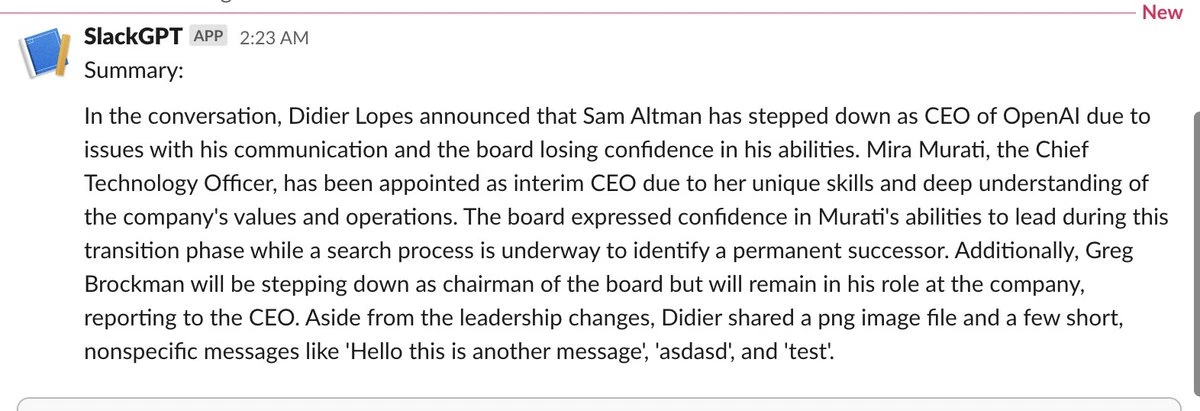SlackGPT - Your Slack bot that summarizes unread messages
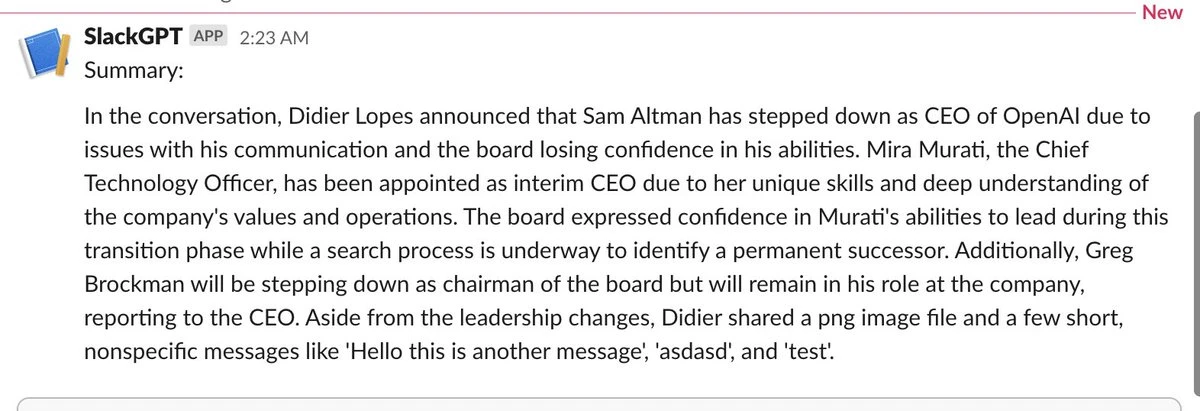
The SlackGPT is a Slack bot that summarizes conversations and sends you a summary per channel.
The open source code is available here.
Context
Saw someone the other day tweeting that it would be great if there was a SlackGPT that could summarize all the Slack messages for when they wake up.
And I immediately related to that. We are a team of 20, and I'm the only one in SF. So when I wake up, most of the team is already half a day in or has just wrapped up.
That means that I always spend the first 30 minutes of the day reading messages to catch-up on everything.
And tonight felt like hacking something quick.
So I created a script that:
- Reads all Slack messages from the time I go to bed
- Summarizes the conversation of each channel
- The bot sends me a message with this summary
Getting Started
Clone the open source project here.
Slack API
-
Go to Slack API page and create a new app.
-
Install the app in the workspace you are interested in summarizing Slack messages.
-
Get the User OAuth Token which exists in the Install App settings. This will be needed to use Slack's SDK. Set this value as the
SLACK_TOKENon a.envfile if you want to run the script locally or as a GitHub secret if you want to leverage the GitHub workflow.
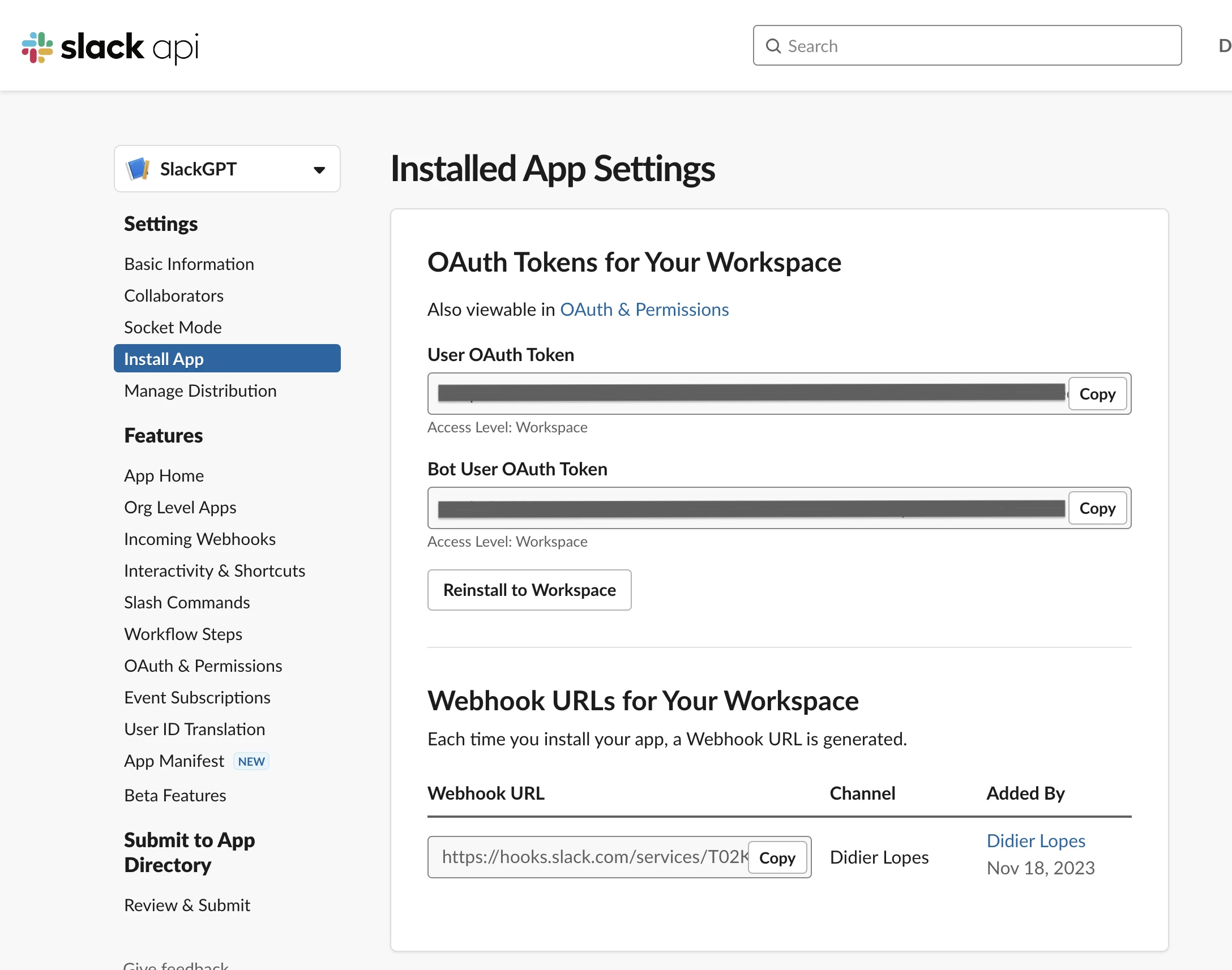
-
Create a Webhook URL for your channel so that you can receive messages' summary. Set this value as the
SLACK_WEBHOOK_URL`` on a.env` file if you want to run the script locally or as a GitHub secret if you want to leverage the GitHub workflow. -
Depending on the type of access needed, different User Token Scopes need to be set. Here's the methods that we will need and the associated user token scopes.
-
conversations_history: This method retrieves a conversation's history of messages and events. It requires the channels:history scope for public channels, or groups:history for private channels and im:history for direct messages.
-
users_info: This method returns information about a user. It requires the users:read scope.
-
conversations_info: This method retrieves information about a conversation. It requires the channels:read scope for public channels, or groups:read for private channels and im:read for direct messages.
-
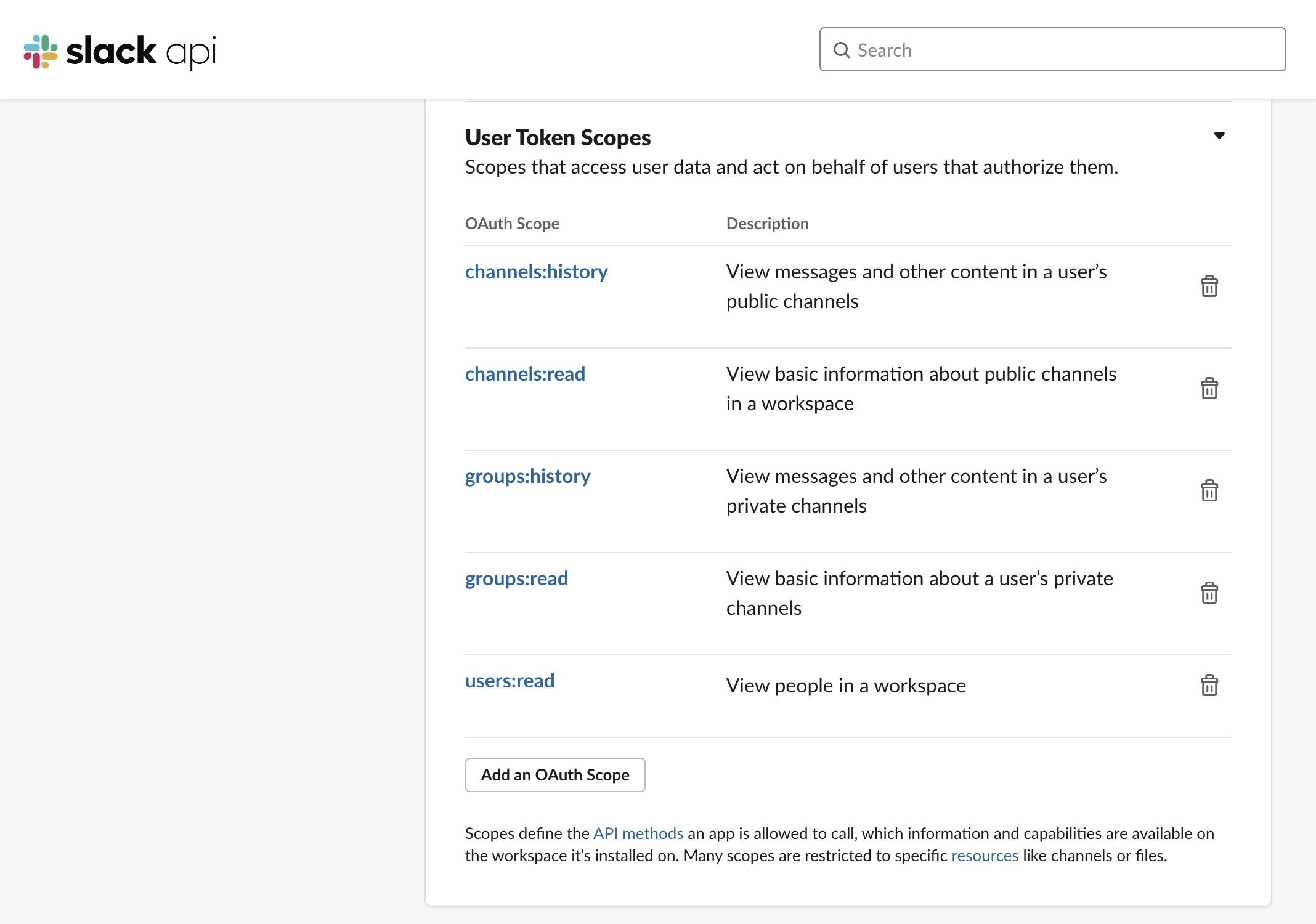
OpenAI API
Go to OpenAI API page to extract the API key. Set this value as the OPENAI_API_KEY on a .env file if you want to run the script locally or as a GitHub secret if you want to leverage the GitHub workflow.
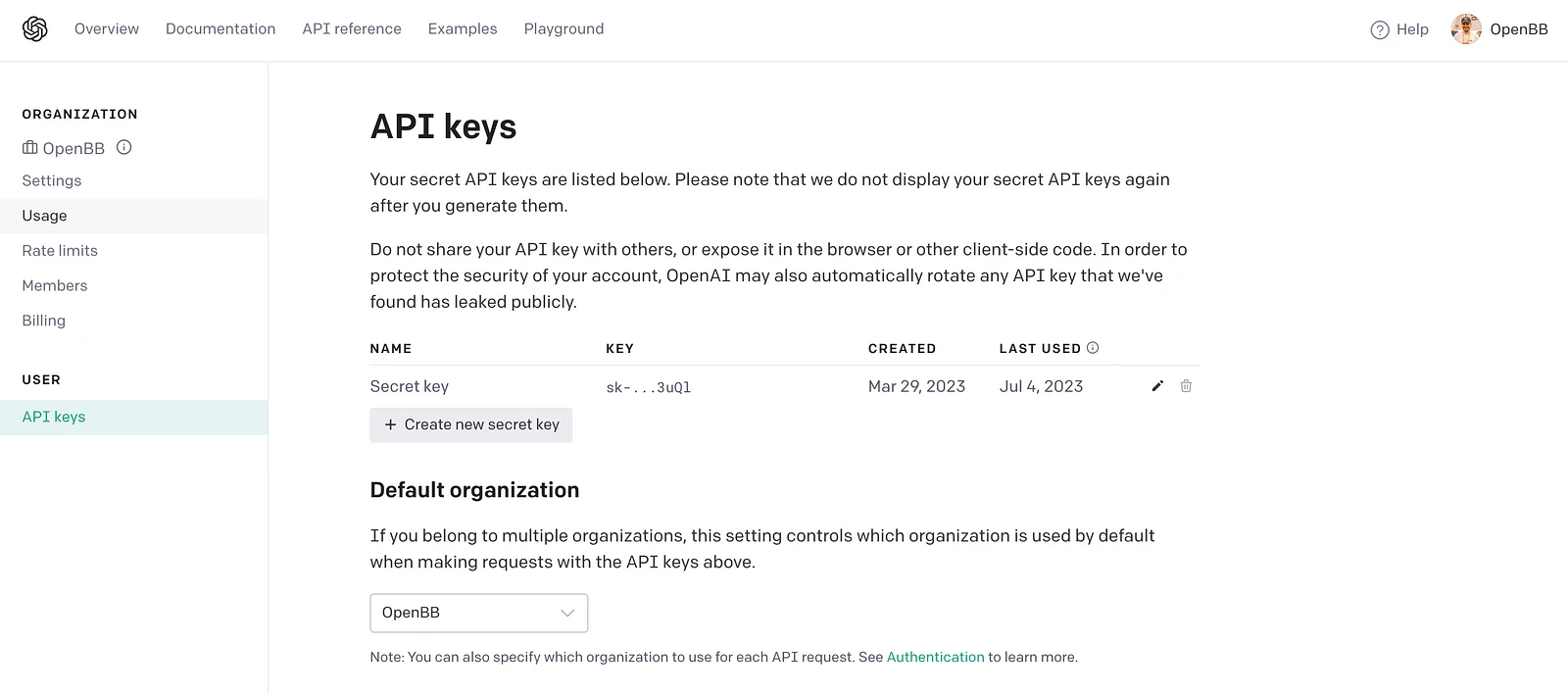
Slack channels
Get the Channel IDs that you are interested in reading messages from.
Set those values as the SLACK_CHANNEL_IDS on a .env file if you want to run the script locally or as a GitHub secret if you want to leverage the GitHub workflow. If you want to read from multiple channels you can set SLACK_CHANNEL_IDS with multiple IDs separated by commas (with no space), e.g. ABC123,DEF456,GHI789.
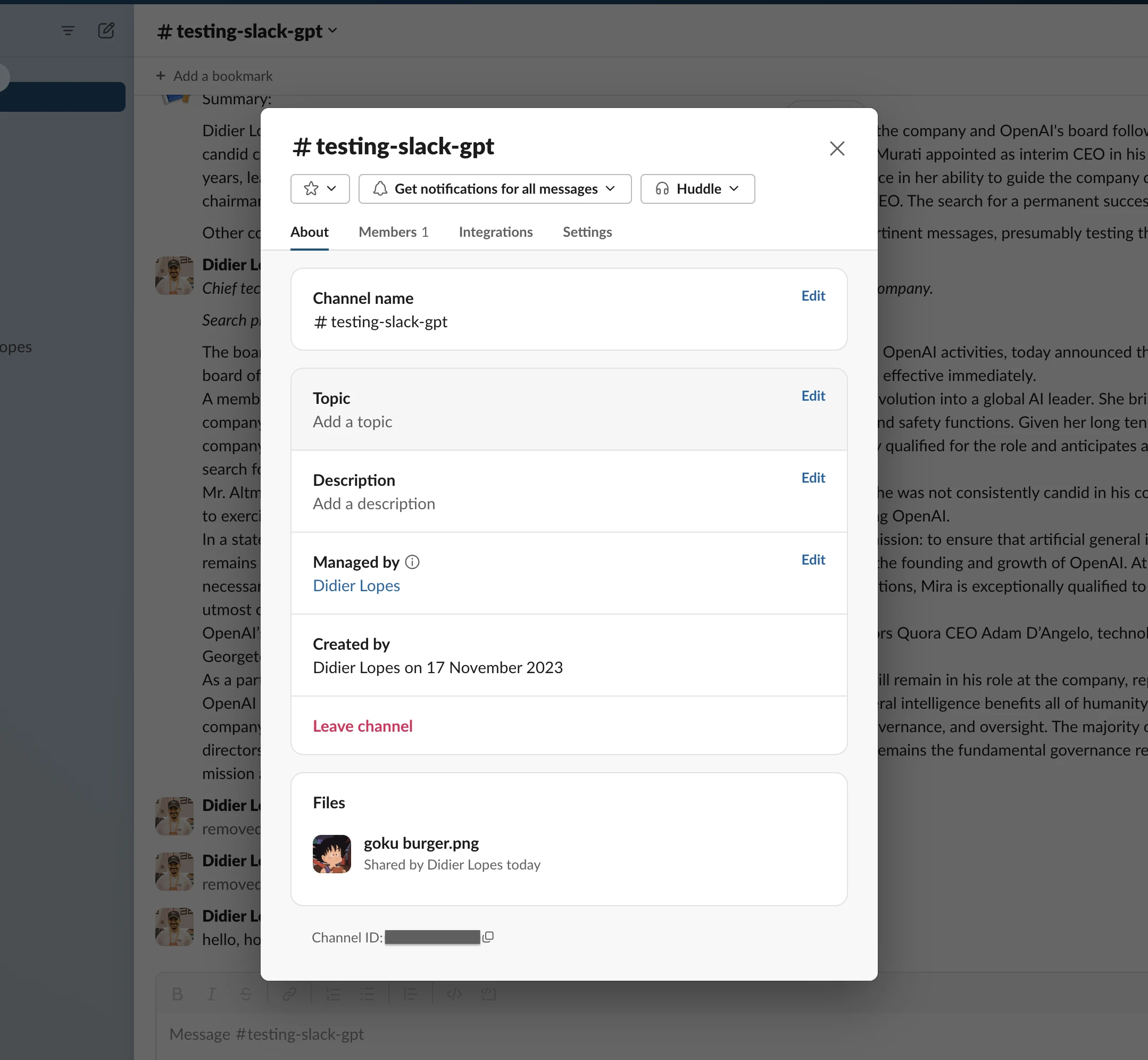
Running
After you fork the project here, there are 2 ways you can run the code.
-
Ad-hoc by running the python script with
python slackgpt.py -
Automatically, by leveraging GitHub actions. For this you will need to set up GitHub secrets and you can modify this workflow in order to change the frequency of the messages sumary.
The most important part of this script is the cron: '0 8 * * 1-5' which specifies the frequency. In this case, the expression means that the task will run at 8:00 AM from Monday to Friday, and breaks down as follows:
-
0: Specifies the minute when the task will run (in this case, 0 minutes).
-
8: Specifies the hour when the task will run (in this case, 8 AM).
-
*: Represents any day of the month, meaning the task is not restricted to a specific day.
-
*: Represents any month, meaning the task is not restricted to a specific month.
-
1-5: Specifies the days of the week when the task will run (Monday to Friday).
Results
By inputting the following text on the Slack channel of my choice:
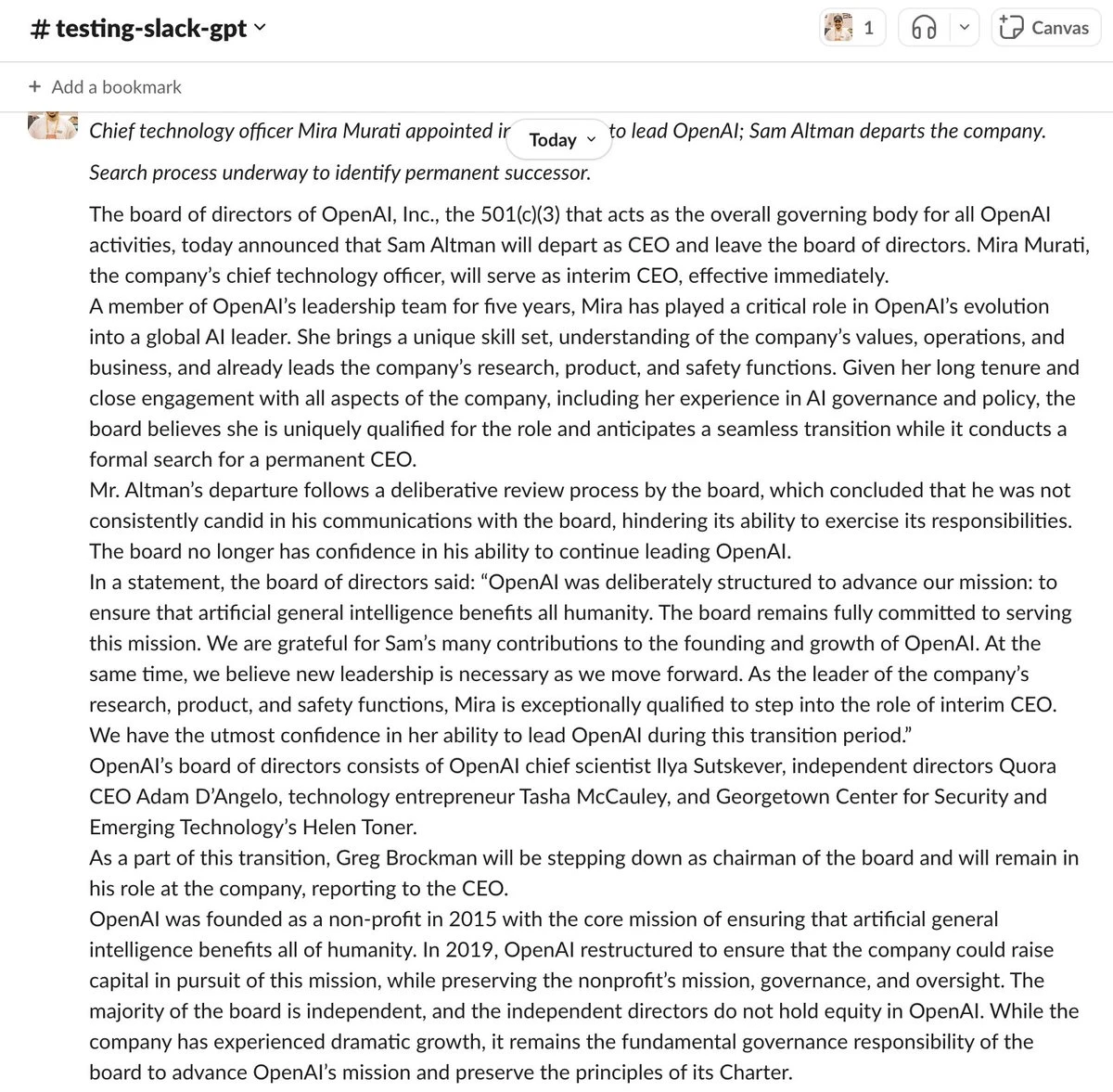
The SlackGPT summarized it as follows:
